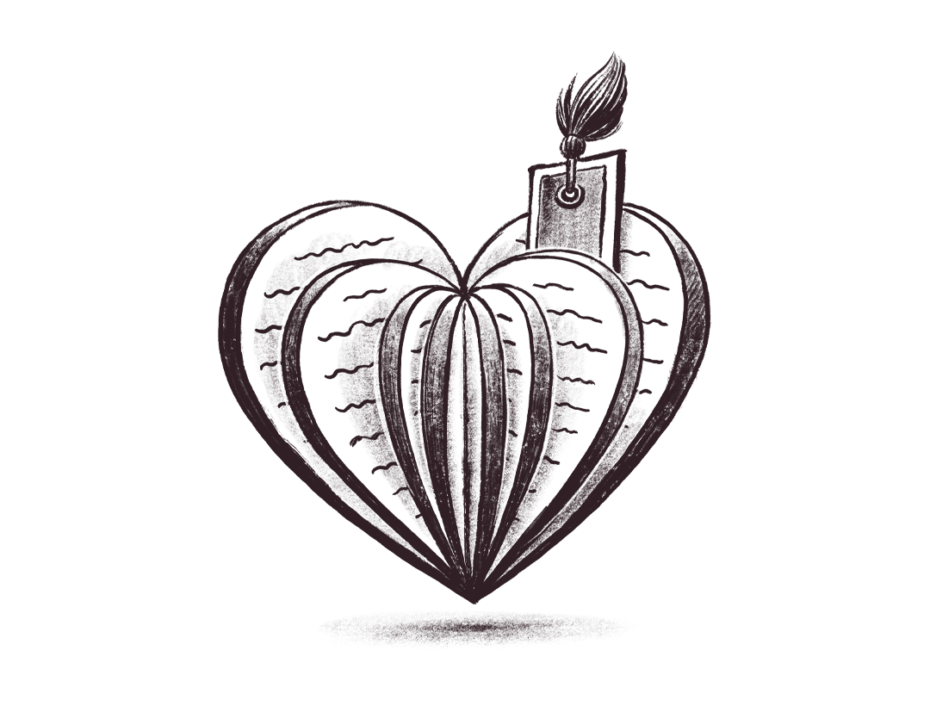Kai’s lived experience of suicide interview

This is an interview with Kai (he/they). They have shared their lived experience of suicide with us. If you feel like you want to stop reading, there is Quick Exit button on the top right of this page.
You can read other lived experience stories here.
Why do you think suicidal thoughts started for you?
I had a lot of family issues implode when I was a teenager that I was stuck in the middle of, while also dealing with relentless bullying as a closeted gay teen. Self-harm was the doorway I walked through because it felt like I had some semblance of control. Suicidal thoughts followed closely behind and have never really left.
Do you feel overwhelmed by these thoughts? Are they passively in the background of your day-to-day life?
Passively, they are always there, like background noise. I’ve come to accept that this is part of my life. Sometimes when I’m in a good place, they are no different to just another cloud in the sky or a wave in the ocean.
However, when I’m in a bad place, they can strike out without warning. It can be the smallest trigger that sets it off, usually an external trigger, and in the blink of an eye, it feels like my mind has teleported to the edge of a cliff and I have to work really hard to gradually reel it back. It can be exhausting to be your own worst enemy.
Are these thoughts always negative? Could they be a source of comfort? Are they always about death?
They are always negative, graphic, and varying degrees of intensity. They scare me. Because they’ve been constant for half my life, sometimes I am convinced that, one day, I’ll die that way. I don’t know how or when or where, but I feel it’s a looming shadow.
But I hold on, day after day. When doctors and therapists ask what stops me from having a plan or turning ideation into intention, it’s always the same answer.
I don’t want to die. I want the pain to stop, or I just want peace. I hold on because of hope. Hope isn’t always a bright light at the end of a tunnel. I’m not psychic, I can’t predict the future. For me, it’s just a belief that things might improve, they might get better.
Have you accessed any crisis services, and what was that experience like? Have you accessed any mental health services, and what was that like?
I’ve used services like Beyond Blue, Lifeline, Blue Knot Foundation, and 1800RESPECT. Across all of these, it has been very hit or miss. I know I much prefer women clinicians/support workers, I find them to be more nurturing.
I can tell at the start of a phone call if I am going to find use out of it. I know it’s going to be redundant if they give textbook responses or sound like they are following a script, and I tend to wrap up those calls fairly quickly, lie and tell them that it’s been helpful, and go to sleep. Usually, I just need to blurt out how I’m feeling, externalising it, so it gets off me.
I have been going to therapy consistently for 7 years now. I have had some nice, but not helpful, therapists, some truly unprofessional ones, and some great ones. I was seeing different counselors at my university to begin with, then once I graduated, I had to find a new one.
The first psychologist diagnosed me with generalised anxiety disorder (GAD) which was validating, but he told me I had enough coping mechanisms and he couldn’t help. The second therapist was terrible, and I refused to go back when he suggested something unethical in response to dealing with my trauma.
For my current therapist, I asked to see her specifically after a friend’s recommendation and wouldn’t take anyone else. I find her very maternal and nurturing. It has been very validating to have someone just acknowledge the pain and suffering.
What are your thoughts about how stigmatised suicide is?
It’s the typical idea of suicide and mental health being invisible. People can’t see it externally like they can a broken bone. They don’t see physical impairment like a limp. If they haven’t experienced it, they can’t relate to it because of the perception that anxiety is just ‘nervousness’ and depression is just ‘sadness’. Out of sight, out of mind, swept under the rug. But the less we talk about it, the more the shame of it digs its roots in, and the stigma remains.
Have your experiences with suicide transformed you?
I’m very empathetic to a lot of people’s struggles. I know how dark that hole is and how lonely it can be. This is sometimes a double-edged blade, though. I will care too much about things I cannot change and try to internalise someone else’s struggles. I know what it’s like to carry the weight of the world and despise it so much that I’d rather do it for someone else so they can have some relief. Of course, it never works. I just end up thrown to the wolves of despair.
On the flip side, it has made me very resilient and strong. People attach those words to me a lot, which I hate because I wish my life was one that didn’t have to know such strength and resilience. I know it’s a positive asset to have but I’m not someone who sees blessing in suffering, sometimes I’d just rather not suffer.
I also have a lot of coping strategies in my toolbox. I write in a journal, I listen to ASMR (Audio Sensory Meridian Response videos), I listen to music, I watch a familiar TV show or movie to distract myself, I listen to inspirational videos from Oprah or Brené Brown, I post inspirational quotes on Instagram, I play a game to distract myself, I meditate, I write creatively, I escape into a book, and the list goes on.
Is there any advice you would give to someone experiencing suicide?
Just because it feels very lonely doesn’t mean you are alone. Reach out to someone. Find your coping strategies.
When you’re in the absolute pits, it’s dark, and you’re feeling alone, it can be hard to remember to care or acknowledge it. That doesn’t mean putting on a brave face and pushing through. Maybe it’s comfort eating, lying in bed crying, getting up to shower before going back to bed. Sometimes even these small, simple actions are the biggest wins because it means you’re still going.
Also, keep perspective. Mindfulness tends to attract eye rolls but stay with me.
One thing that has been really helpful is to think of my thoughts as clouds or waves and I am observing them. They come, they float by, they go away. Some are stormy or destructive, but some are beautiful and calm.
Is there any advice you would give to the people who are supporting someone experiencing thoughts and feelings of suicide?
Topics like mental health or suicidal ideation are uncomfortable and deeply vulnerable to talk about. Some people will want to keep it at arm’s length, but what we need in those times is for you to move in close.
We want acknowledgement and validation. We don’t want to be brushed aside. I don’t want you to try to fix my problems, it’s not your job. Besides, it can be annoying and have the opposite effect – I don’t need to be told to meditate, to go for a walk, to just think positive, to be grateful.
I don’t need someone to show me silver linings on the storm clouds, I need someone to see me sitting in the storm.
I just want you to hold space and be present with me. Let’s talk about how I’m feeling, what’s troubling me, what I’m ruminating over. Just hear me say I’m struggling and acknowledge that.
Then let’s laugh about silly things or make inappropriate jokes to remember that there are still moments of joy in darker times.
